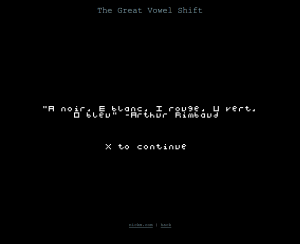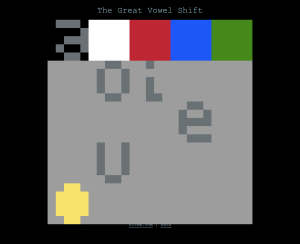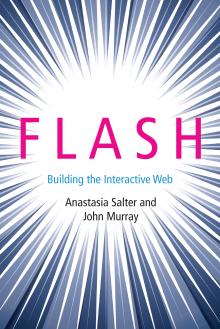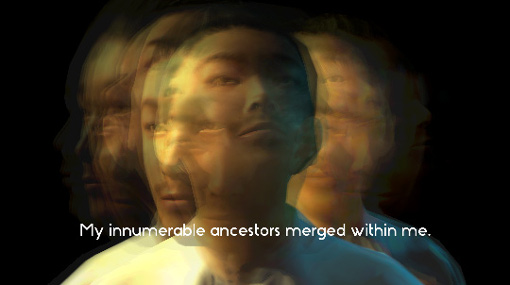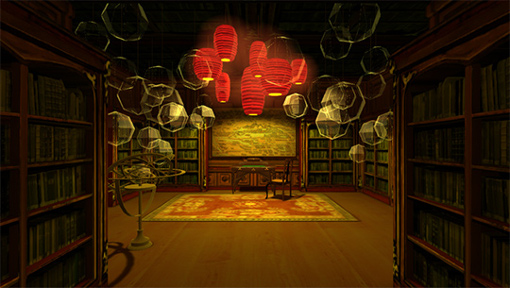My first PuzzleScript game is a concrete poem that, after a few levels, taunts you, the player, with a metapuzzle.
“Apple II vs. Commodore 64” Trope Tank Video
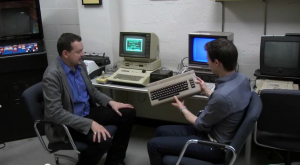 Erik Stayton’s 12-minute video “Apple II vs. Commodore 64” is now up on YouTube. It’s shot in the Trope Tank with him in conversation with me there. We discuss several of the things you’d experience in emulation, but also make reference to material specifics of these systems and the two specific computers and controllers that were used.
Erik Stayton’s 12-minute video “Apple II vs. Commodore 64” is now up on YouTube. It’s shot in the Trope Tank with him in conversation with me there. We discuss several of the things you’d experience in emulation, but also make reference to material specifics of these systems and the two specific computers and controllers that were used.
Erik played three quite different games that we had on hand, on disk, for both systems: Skyfox, World Karate Championship, and Hacker. Besides discussing graphics and sound quality, we also talk about the playability of these games with the controllers we have and issues such as loading times.
Trope Tank Writer in Residence, Spring 2015
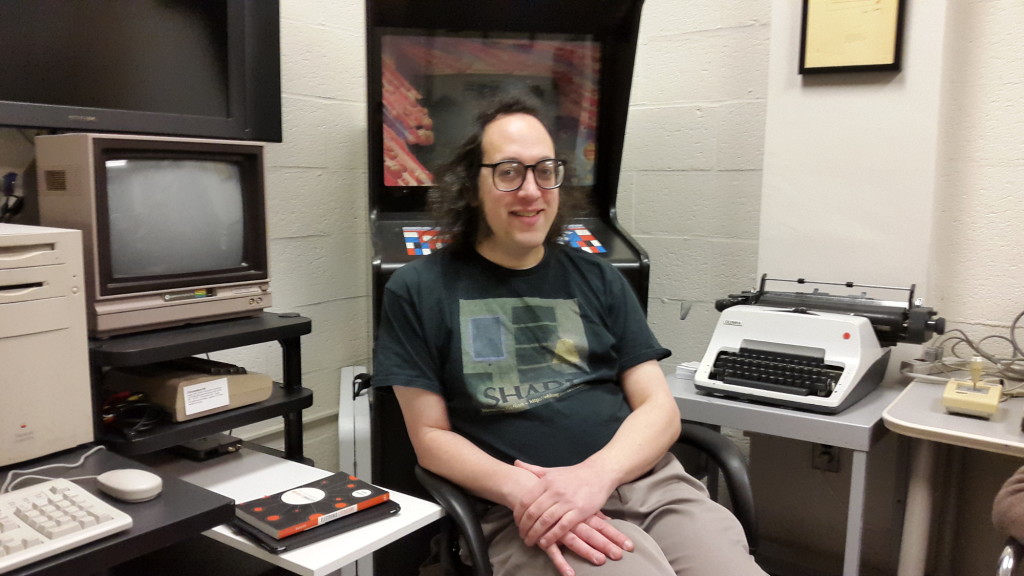
This Spring, Andrew Plotkin (a.k.a. Zarf) is the Trope Tank’s writer in residence. Andy will be at the Trope Tank weekly to work on one or more of his inestimable projects — as a game-maker, programmer, and platform developer, he has been working furiously for many years. (His home page is modest in this respect; See also his latest game, Hadean Lands.)
A Great Platform Studies Answer
To how software keeps getting better and graphics get better-looking on the same old consoles.
Note that for the Atari VCS / Atari 2600, only answers #3 and #4 apply, since developers didn’t use “engines” or even compilers, instead writing their code in assembly langauge. (Presumably the assemblers didn’t improve much over the years.) Also, the VCS had no firmware, flashable or otherwise; although refined versions of the hardware were produced over the years, such as the Atari 2600 Jr., such systems were optimized for cheaper manufacturing and didn’t improve performance.
Still, there are important continuities between the answer to this question for the VCS and for modern-day consoles. And the answer is not obvious, since companies and the press usually emphasize the improvements in hardware that are made between generations of a console.
News Flash: Flash News!
There’s a nice article up at The Atlantic about Flash, written by the two authors of the new Platform Studies book, Anastasia Salter and John Murray. Their new book, I’ll remind you, is Flash: Building the Interactive Web.
Interactive Fiction Meetup at MIT, Again, Tomorrow
The People’s Republic of Interactive Fiction meets once again tomorrow (Monday 2014-11-24) in its regular meeting-place, the Trope Tank. We meet at 6:30 in MIT’s room 14N-233.
There is much to discuss and celebrate, such as the conclusion of the IF Comp – congrats to Sean M. Shore for his 1st place game Hunger Daemon, and to all the other winners. Besides that there’s the recent release of Hadean Lands by PR-IF stalwart Andew Plotkin. And, today there’s a front-page New York Times article about IF, and Twine games specifically. I’m sure I forgot some things we have to celebrate, so come by to see what those things are.
A Platform Studies Book: Flash
I’m delighted that Flash: Building the Interactive Web by Anastasia Salter and John Murray has just been published by the MIT Press.
This is an excellent study of an influential software platform – our first such study in the Platform Studies series – and it both traces the history of the platform, its development and the contexts in which it arose, as it also covers many famous and representative Flash productions.
Mark Sample writes of it, “Combining historical research, software studies, and a deep appreciate for digital creativity, Salter and Murray dramatically explore Flash—whose very ubiquity has heretofore made it transparent to media scholars—as the defining technology for a generation of artists, storytellers, game designers, and Web 2.0 companies.”
Dene Grigar calls it “a must-read for all scholars and artists of digital media,” while Aaron Delwiche names it “the best and most provocative work I’ve encountered about emerging technologies since the publication of The Cyborg Handbook.”
Flash is still with us, but Salter and Murray nevertheless take up the difficult task of providing the historical context for this platform’s creation, from the days before it supported general-purpose programming through its dominance on the Web. The relevance of this book is not limited to a particular product (now, but not always, an Adobe product). It extends to the Web to interactive computing overall.
Forking Paths and Forest Platformer of Depression
I’ve revisited two games about depression which seem interesting to compare. One has been discussed more recently, particularly thanks to its recent release on Steam: the Twine game Depression Quest. (It’s also available on the Web.) The other, which is in Flash and on the Web, is the platformer Elude. The latter was developed at MIT, in the GAMBIT Game Lab.
Both of these games have seen plenty of discussion, but I wanted to mention an aspect that make them interesting to compare. Of course, Elude is graphical and played in real time, while Depression Quest is text-based and allows the user to select CYOA-style options. But that’s quite obvious.
More interesting to me is that “Elude‘s metaphorical model for depression serves to bring awareness to the realities of depression by creating empathy with those who live with depression every day,” while “Depression Quest is a game that deals with living with depression in a very literal way.” Of course, being literal or metaphorical goes beyond having a single axis or slider, and it isn’t tied to whether one has a graphical or textual game. It’s interesting to see two games about the same subject matter that declare their intent to be different in this way. I wonder if there is a pair of games on similar topics where the text game is very metaphorical and the graphical game literal?
Senderos que se … Intimate, Infinite
Robert Yang’s latest is a first-person-shooter version of Jorge Luis Borges’s “The Garden of Forking Paths.” With a lovingly off-kilter translation (befitting its “original”) and with visuals and (quite minimal) interaction that suits the experience, this is an extraordinary set of linked mini-games, well worth the short amount of time it takes to get through them, and worth offering at least a bit for this pay-what-you-will game.
Check out Intimate, Infinite.
Intro to Game Analysis
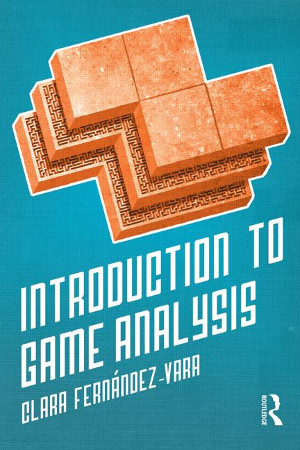 Just out: Introduction to Game Analysis, a book that covers many different approaches to understanding games, and particularly (although not exclusively) videogames. (Check the availability of the book online.) It’s by Clara Fernández-Vara, now on the faculty at the Game Center at NYU, who did one of the first digital media PhDs at Georgia Tech and was for many years my colleague here at MIT – I’m glad she was also part my of lab, The Trope Tank, for some of that time. Fernández-Vara is a scholar of games and an award-winning maker of games as well, and in both cases her emphasis has been on adventure games.
Just out: Introduction to Game Analysis, a book that covers many different approaches to understanding games, and particularly (although not exclusively) videogames. (Check the availability of the book online.) It’s by Clara Fernández-Vara, now on the faculty at the Game Center at NYU, who did one of the first digital media PhDs at Georgia Tech and was for many years my colleague here at MIT – I’m glad she was also part my of lab, The Trope Tank, for some of that time. Fernández-Vara is a scholar of games and an award-winning maker of games as well, and in both cases her emphasis has been on adventure games.
It’s been valuable to learn, over the years, how to view games as we would literature or film, and how to bring specific individual approaches to bear in understanding them. Now, Introduction to Game Analysis offers numerous methods of analysis that each treat games as games. These approaches are systematically organized and well thought out, too. Anyone in game studies or digital media should find this book compelling; A person who is coming to video games from another field, or who has been in the field and is looking to teach an introduction to video games, will find it essential.
Advanced Bitcoin Simulator
If you felt like you missed your chance to … profit! … from the ascendance of Bitcoin, try the new, shiny Advanced Bitcoin Simulator, an interactive fiction by a sekrit author. It’s built with yui3, Inform 7, and parchment, but also builds on the simulation of online forums found in Judith Pintar’s CosmoServe, incorporates some of the audacity of several recent Twine games, and offers a bit (no pun intended) of the Ayn Rand pillory found in Bioshock.
Nonstop Interactive Fiction in Boston
Hello from Cambridge, Massachusetts, where I’m currently dressed as a grue. The streets are unnervingly lit up tonight for some reason and many people are about. Perhaps my quest to find a dark, quiet place will lead me to Fenway Park.
There is a lot of news about upcoming interactive fiction events, and the first part of a two-part article by Illya Szilak, “A Book Itself Is a Little Machine: Emily Short’s Interactive Fiction,” is just out in The Huffington Post.
If you weren’t there, you missed Arden Kehoe presenting on her visual novel Kindness Coins at Women in Games Boston on October 29, but you can read a bit about her work at the page for the event.
There will be another reading of Lost Pig (the award-winning game by Admiral Jota) on Sunday, November 3, at 6pm, at Pandemonium Books in Central Square.
There will be a reading of Adam Cadre’s award-winning Photopia on Tuesday, November 5, at 5pm in University of Massachusetts Lowell’s Olsen Hall, room 311. Adam won’t be at this reading, and I don’t believe Admiral Jota will be at Pandemonium Books event. Adam did read from Photopia himself at this event in Boston way back in 2001.
The “People’s Republic of Interactive Fiction” (PR-IF) meetup for November will be on Saturday, November 9, 4:00 pm, in my lab, The Trope Tank, MIT room 14N-233. (We usually meet Monday or Tuesday at 6:30pm; this is an exception.) Special guest Emily Short will be demonstrating the authoring tools behind Versu. Emily will also be speaking on Versu in New York City on Wednesday November 13.
PR-IF now is on teh Twitter, as @IFinBoston, which is a good thing since there’s so much going on. Our Twitter presence is backed by the amazing technology known as Jason McIntosh.
An introduction to writing interactive fiction will be offered one week after the Photopia reading, on Tuesday, November 12, same time, same place: 5pm in University of Massachusetts Lowell’s Olsen Hall, room 311. These two events at UMass Lowell are sponsored by that school’s Association for Computing Machinery (ACM).
Finally, the 2013 IF Comp is currently going on. There are 35 entries. You can download, play, and vote on the games, with votes due November 15.
Videogame Editions for Play and Study
Now available: TROPE-13-02 – Videogame Editions for Play and Study by Clara Fernández-Vara and Nick Montfort.
>We discuss four types of access to videogames that are analogous to the use of different sorts of editions in literary scholarship: (1) the use of hardware to play games on platforms compatible with the original ones, (2) emulation as a means of playing games on contemporary computers, (3) ports, which translate games across platforms, and (4) documentation, which can describe some aspects of games when they cannot be accessed and can supplement play. These different editions provide different information and perspectives and can be used in teaching and research in several ways.
Enjoy, and please let us know here or elsewhere if you have discussion about this.
A Science-Fictional Conversation
Indie Games Galore at Boston FIG
I’m here at the Boston Festival of Independent Games (Boston FIG) today. It’s actually in Cambridge, at MIT, but otherwise the title is not misleading: It is festive and full of indie games and discussion of them. I’ve seen an incredible variety of work by individuals and small teams of developers. Just to give some flavor of the event — according to my notes, I’ve seen:
[cf]fig[/cf]
A New Trope Report on E-Lit Readings & Exhibition
Thanks to Dr. Clara Fernández-Vara, the Trope Tank has a new technical report, TROPE-13-01: “Electronic Literature for All: Performance in Exhibits and Public Readings.”
This report covers readings of interactive fiction done by the People’s Republic of Interactive Fiction, the Boston area IF group, and the exhibit Games by the Book, discussed previously on here. But there is much more detail in this report about how these attempts managed to share computational works (works that are both games and e-lit) with the public. If you are interested in outreach and presentations of this sort, please take a look.
Radical Books of 2012 (3/7)
Rise of the Videogame Zinesters: How Freaks, Normals, Amateurs, Artists, Dreamers, Drop-outs, Queers, Housewives, and People Like You Are Taking Back an Art Form
Anna Anthropy
Seven Stories Press · 208 pages
The discussion of mainstream gaming in this book, while it isn’t exactly generous, covers both what is produced and the labor issues of how it is produced. The book’s DIY instructions point readers to tools and sketch the simplest sorts of development processes. (Such pointers may be what a book does best, as there is plenty of relevant information online.) What makes this book valuable and radical (other than the conceptual writing exercise cataloging game topics on pp. 137-139) is the amazing world it presupposes in which Halo and Bioshock can go unmentioned while there are pages about Anthropy’s Gay Sniper. Unofficial games made by individuals are shown to be part of culture and the politial and social discourse. Beyond newsgame and artgame, although not detached from some of their tactics, are many short experiments, games about “putting down your dog” that speak to everyday experience. Games that say what you want them to say and not games that say what someone else wants you to say.


